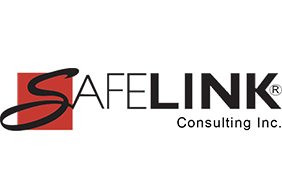Learning from mistakes, whether our own or others', is a valuable way to improve. In this article, I aim to highlight the top ten quality mistakes often made by businesses and provide insights on how to prevent them within your organization.
Last month this article covered the first five biggest quality mistakes and what you can do to prevent them. This month I’ll complete the article with the following issues:
- Using questionnaires to evaluate suppliers
- Applying document control to official documents only
- Focusing on petty details
- Training some types of personnel, but not all
- Doing anything just because an external auditor told you to
Number Six: Using questionnaires to evaluate suppliers
Even though a written statement from your suppliers and subcontractors may be a part of your evaluation process, you should realize that if you ask them to rate themselves it’s only natural for them to be biased. A tracking system for complaints against your suppliers and subcontractors is an effective way to evaluate how they are performing for you. Some of the issues that you might consider are:
- Did the product arrive timely?
- How often are your materials or products on backorder?
- How often are you returning products to subcontractors?
- How often are you returning defective materials to suppliers?
- Are problems resolved to your satisfaction?
- Any problems with accuracy of billing?
Review the performance of your suppliers and subcontractors regularly. An overall review will be done in your management review meeting, but problems need to be dealt with quickly so they don’t continue. Also an onsite survey or audit of your suppliers and subcontractors is not unreasonable so consider that action as a part of your evaluation process. You can perform the survey or audit or you can hire an auditor to conduct it for you. This is highly recommended when you use subcontractors.
Number Seven: Applying document control to official documents only
You may be doing a good job in controlling official documents such as standard operating procedures, work instructions, prescriptions, work tickets, invoices, lot tracking sheets, and corrective actions, but are you controlling the unofficial documents? These are typically found in administrative and production areas in the form of post-it notes, memos, emails, variations in procedures. All of these items, plus photographs and x-rays, should be controlled documents. Take a walk around your lab and check out these types of notes. Anything that should be shared with all workers regarding a doctor’s preferences, for instance, should be located in the case management system or other system used to share this type of information with everyone involved in production. Proper documentation and sharing of this information can prevent a customer’s dissatisfaction that you’re not following his preferences. Look for this type of information displayed in work areas as you regularly conduct a walk-thru of your lab.
Number Eight: Focusing audits on petty details
Internal audits are conducted not only as a requirement of compliance with FDA and other quality management systems, but also to aid in continuous improvement. You should have well-trained internal auditors who are knowledgeable of your operations and processes. They should be encouraged to not become preoccupied with petty details, but go after the big, strategic issues. Some of those issues are:
- Is the system for capturing and analyzing customer satisfaction actually resulting in improvements?
- How effective are management reviews? Are they occurring as planned?
- Are nonconformities traced to root cause? Are causes removed to prevent recurrence?
- Are internal audits scheduled and carried out as planned? Are nonconformities in audit corrected?
- Are quality objectives communicated to all employees? Do they understand how they can contribute to the objectives?
- Are the quality objectives being met?
Number Nine: Training some types of personnel, but not all
Ensuring competency of all of your workers is critical to compliance but more than that it’s critical to the success of your business. Lab owners recognize that production workers need training, however, in some cases managers may not receive adequate training. An assessment of the training needs for all workers should be a part of the quality system. A wrong decision by a top manager can lose a customer and worse than that put you out of business. Provide managers with training so they maintain the skills needed to manage your business.
Number Ten: Doing anything just because an external auditor told you to
The purpose of an external audit is to verify that you are following your documented quality management system which includes your procedures and work instructions. Sometimes you may be tempted to ask an external auditor to recommend how you should carry out a process that the auditor has indicated as nonconforming. Remember that you should determine the best way to carry out a process in your business. No one knows your business and your customers better than you.
Summary
Review these ten mistakes and use them to improve your business. Development of a quality mnagement system takes a lot of skill, labor, and money. Now begin to see it mature and pay off for you by ensuring continuous improvement.
Credit to Craig Cochran, North Metro Regional Manager with Georgia Tech’s Economic Development Institute, in his article The Ten Biggest Quality Mistakes.
Get dental lab compliance and risk assessment expertise.
Need help ensuring you're not making these 5 mistakes in your organization?
Your first step is to discuss these mistakes with your management team to identify areas of improvement. If you need help, contracting an expert such as SafeLink Consulting is a step in the right direction. Contact us to learn how services are utilized to benefit your business to assist you in achieving a more effective quality management system!
Learn more about FDA Dental Compliance
SafeLink Consulting can assist your business with developing a Quality System and Good Manufacturing Practices - GMP for medical devices manufacturers including the dental lab, workplace health & safety training, infection control training and HIPAA training online, plus more. Learn more about FDA Dental Regulations. Learn more about Dental OSHA Compliance.






